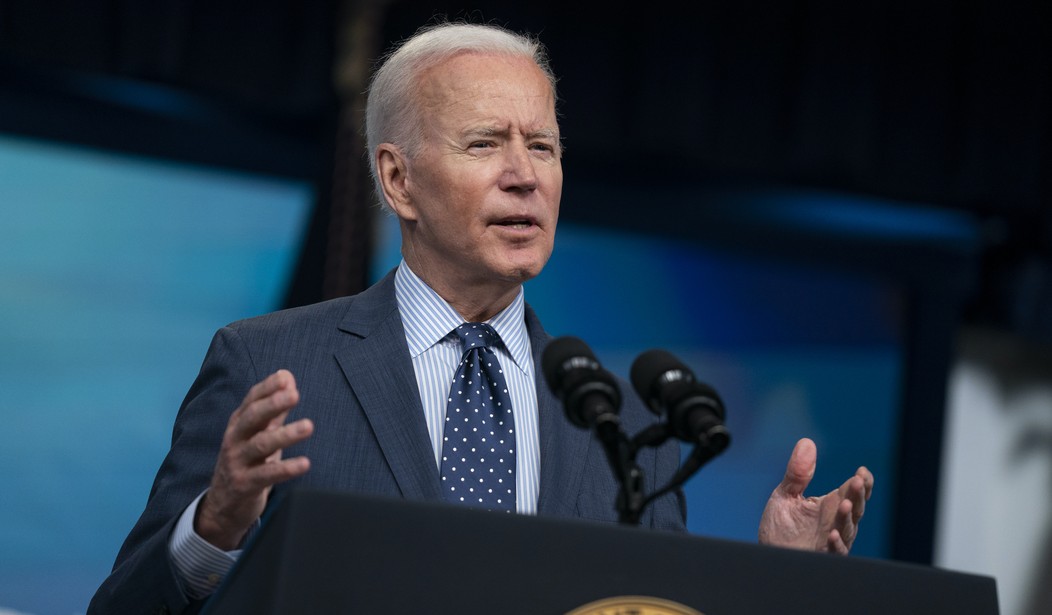Consider this a foreign-policy win for Joe Biden, but only in theory. Biden wants to hike the corporate tax rate in the US, but without the risk of American firms “off-shoring” to benefit from friendlier tax regimes elsewhere. Biden and his team wanted allies to agree to a minimum floor for tax rates, and won that battle in the G-7 meeting in London.
There’s only one problem with that agreement — er, two, actually:
Finance ministers meeting in London agreed to battle tax avoidance through measures to tax companies where they do business.
They also agreed in principle to a global minimum corporate tax rate of 15% to avoid countries undercutting each other. …
The deal – from the US, UK, France, Germany, Canada, Italy and Japan – will put pressure on other countries to follow suit, including at a meeting of the G20 next month.
So … make that three problems. The UK’s chancellor of the exchequer, Rishi Sunak, called it “a historic agreement.” It certainly qualifies as that in the narrowest of definitions, but even at face value it’s not much. Corporations seeking to avoid higher taxes weren’t fleeing to any of these seven countries in the first place. Many of them off-shored in places like Ireland, the Baltics, the Balkans, and so on — where friendlier governments welcomed corporations and the business they brought.
For that matter, a 15% tax rate floor doesn’t do much for Biden and his administration anyway. The US corporate tax rate is already 21%, and Biden wanted to hike it to 28%. He might have to settle for 25%, thanks to Joe Manchin’s opposition to the proposed level, but that still makes other countries within the agreement a better bet for tax sheltering, at least in terms of base rates. Whatever Biden ends up enacting, it will be far enough above the floor as to make this agreement pointless.
Not that it matters among G-7 countries, since the 15% floor is almost a joke. Germany charges 30%, France 26.5%, Italy 28% from two different levies, and it’s 19% in the UK, 28% in Canada (but net 15%, they claim), and 30.62% in Japan. The G-7 might just as well have committed to a floor of 1% for all the impact this will have on their actual tax policies. It’s certainly not going to put pressure on lower-tax countries to kneecap their competitiveness against the wealthiest nations in the world.
But most amusingly, none of them have “committed” to anything at all, emphasis mine:
Treasury Secretary Janet Yellen has been adamant that the U.S. needs to work with international counterparts to prevent nations from being played off each other by firms seeking lower tax obligations.
“The G-7 Finance Ministers have made a significant, unprecedented commitment today that provides tremendous momentum toward achieving a robust global minimum tax at a rate of at least 15 percent,” Yellen, who led negotiations on behalf of the U.S., said in a statement. “That global minimum tax would end the race-to-the-bottom in corporate taxation, and ensure fairness for the middle class and working people in the U.S. and around the world.”
The deal starts what is expected to be a long and arduous process toward changing international tax laws. The agreement is nonbinding and critics have wondered how much of an impact it will have on tax havens dependent on revenue generated by attracting companies through low-tax regimes.
The phrase “non-binding agreement” is a bit of an oxymoron in the first place. If you haven’t made yourself bound to an agreement, then you haven’t made an agreement at all — just established a shared opinion. The only way to actually make this an “agreement” would be to put it into a treaty, which would require support from two-thirds of the US Senate to make it binding here in the US at all. Needless to say, it would be well-nigh-unto-impossible to convince two-thirds of the Senate in any configuration to agree to outsource its taxation options to a multi-lateral organization. The same is likely true for each of the other G-7 countries with sovereign legislatures, to greater or lesser extents.
This is nothing more than an exercise in virtue signaling, so don’t expect the hungrier nations in the G-20 to support it even in its present gassy form. It’s basically designed to give Biden some political support for corporate tax hikes, but it does nothing to disincentivize American companies from off-shoring all over again when he does.







Join the conversation as a VIP Member